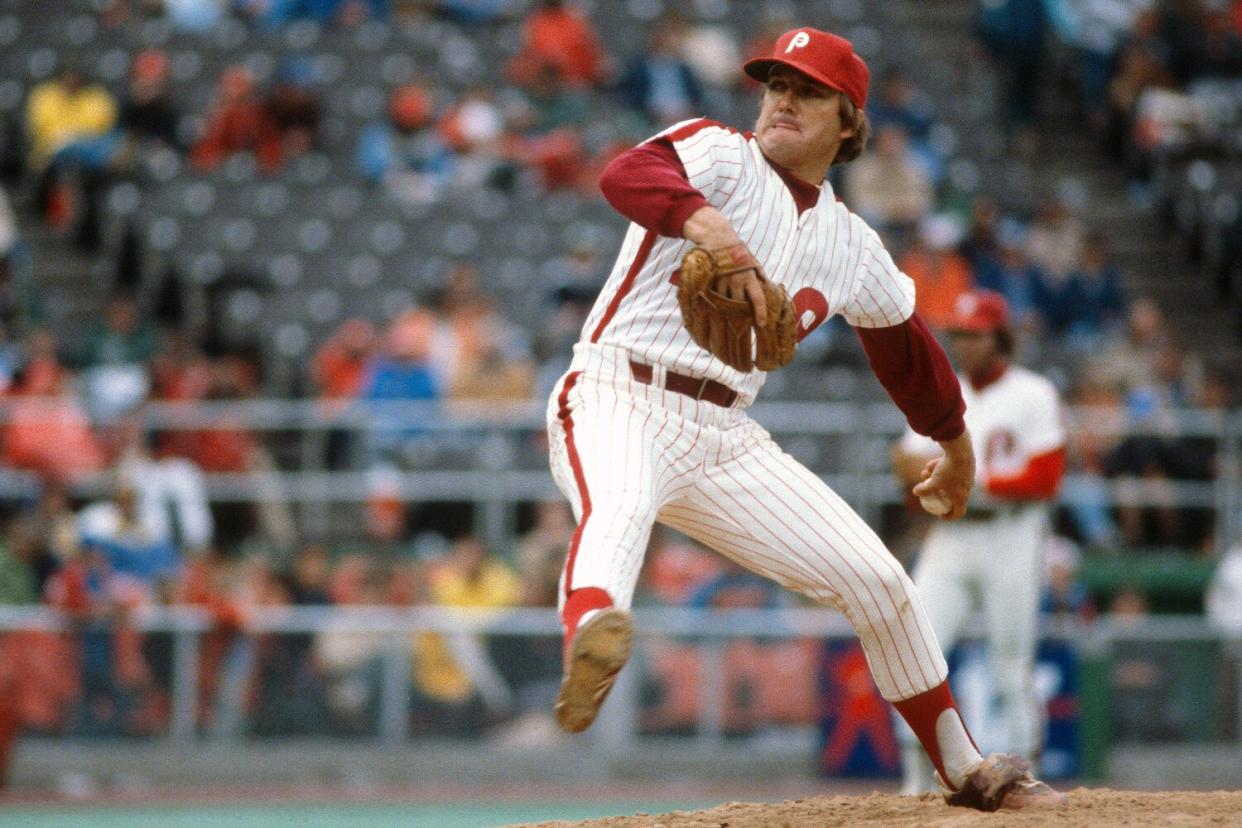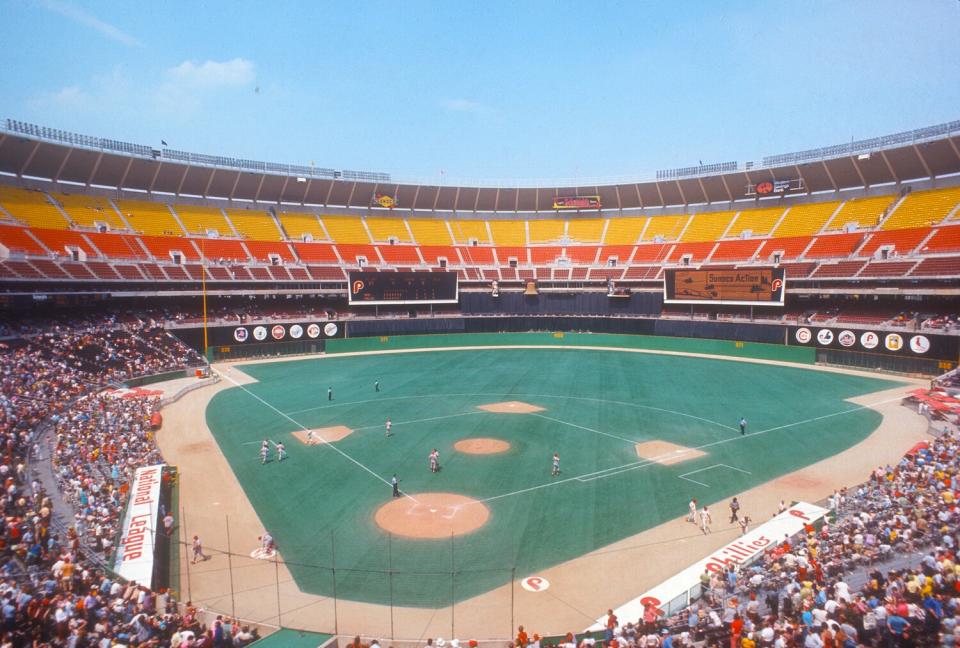6 Former Phillies Players Died of Brain Cancer — and Dangerous Chemicals in Turf Could Be to Blame: Report

Focus on Sport/Getty
An investigation is raising questions about whether the turf at the old Philadelphia Phillies stadium contributed to the deaths of six former players who developed brain cancer — while the team says they've found no evidence of a link.
In a Philadelphia Inquirer report published this week, the newspaper said it began looking into the artificial turf at Veterans Stadium, the former home of the Phillies, after former players David West, Ken Brett, Tug McGraw, John Vukovich, Johnny Oates and Darren Daulton all developed and died from glioblastoma, a deadly and rare form of brain cancer.
"The rate of brain cancer among Phillies who played at the Vet between 1971 and 2003 is about three times the average rate among adult men," the newspaper wrote.
As part of their reporting, the Inquirer bought pieces of the Veterans Stadium artificial turf for sale on eBay, and found it contained "16 different types of PFAS, or per-and poly-fluoroalkyl substances," which are known to cause "Adverse health effects."
PFAS are also known as "forever chemicals," and can last for years without breaking down, per the Washington Post.
Two different laboratories performed tests on the samples, the Inquirer noted.
RELATED: Ohio State's Avery Henry Announces Bone Cancer Diagnosis: 'I Will Fight This!'

Focus on Sport/Getty Veterans Stadium
"Once PFAS gets into [a person's] blood, they circulate through all the organs," Graham Peaslee, a physicist at the University of Notre Dame, told the Inquirer.
"We know that the liver is affected. We know that the kidneys are affected. We know the testicles are affected. But nobody's ever done the study to see if the brain is affected, because glioblastoma is such a rare disease."
PEOPLE reached out to the Phillies for comment on Friday.
In a statement to PEOPLE, the franchise shared "the frustration and sadness of losing six members of our baseball family to brain cancer." Representatives for the team also said they consulted with experts who said there is no evidence that artificial turf can cause glioblastoma.
RELATED: Man Who Won Tickets to the Super Bowl Gives Them to Friend with Stage 4 Cancer for a 'Bit of Joy'
"The Phillies consulted with leading experts in the causes of brain cancer, notably Dr. Kyle Walsh, Director of the Division of Neuro-Epidemiology at Duke University Medical Center and Dr. John Boockvar, Director of the Brain Tumor Center at the Lenox Hill Hospital, to understand the current scientific research in this area," the team said.
"Both doctors advised us that there is no evidence of a causal link between artificial turf and brain cancer, including glioblastoma, and that any suggested connection between PFAS and glioblastoma is unproven," they added. "We eagerly await the day when therapies are discovered to cure or curtail brain cancer and all other forms of cancer."
RELATED VIDEO: Ronnie Hillman Dead at 31: Former NFL Star Running Back Had Rare Kidney Cancer
Glioblastoma, also known as GBM, has no known cure. Standard treatment involves surgery to remove the tumor (if possible), followed by radiation and chemotherapy. The cancer kills more than 10,000 Americans a year, according to the National Brain Tumor Society.
In a separate article, the Guardian said experts they spoke with told them it would be impossible to prove if the chemicals caused the players' cancer.
"The bottom line is anything in the world is possible, but what's plausible and provable are totally different things," Henry Friedman, a Duke University neuro-oncologist who treated two of the players, told the outlet. "There is no way to now say, 'If these chemicals are there, they are causing the tumors.' "
Veterans Stadium was demolished in 2004, and the Phillies have played at Citizens Bank Park since then. As of 2022, the field is made of grass.

